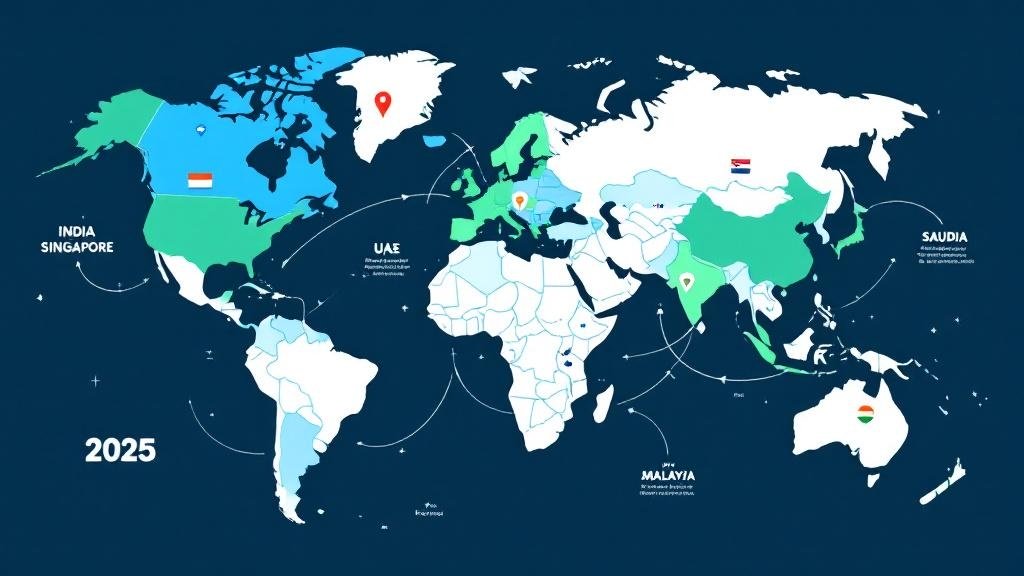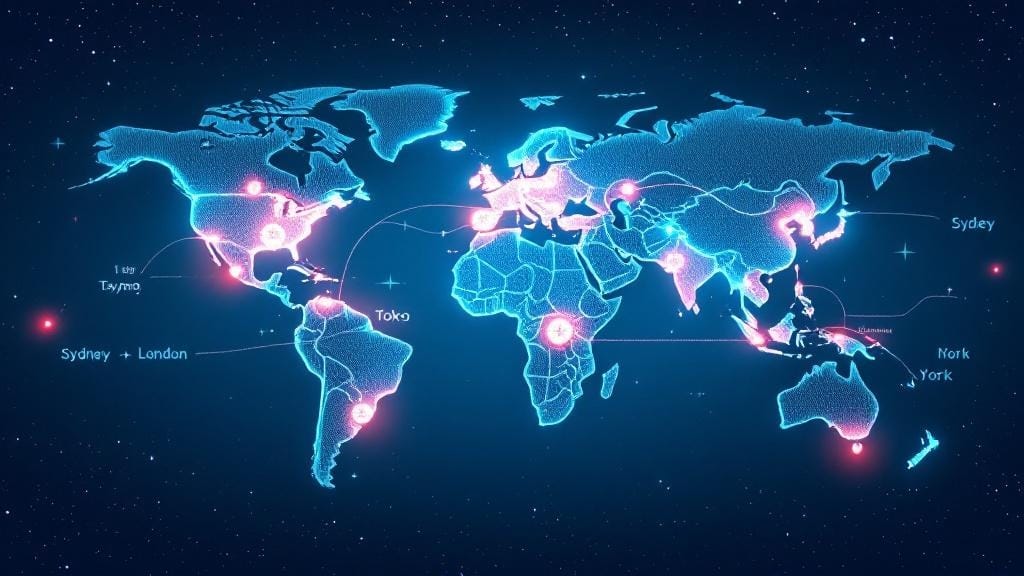Unified Payments Interface (UPI) has revolutionized the way we handle payments in India, offering a seamless, real-time, and secure method of transferring funds using mobile devices. Originally launched in 2016 by the National Payments Corporation of India (NPCI), UPI has since evolved into one of the world’s most robust digital payment systems. In recent years, countries accepting UPI payments have expanded significantly, marking a shift toward a more connected and globalized financial ecosystem. By 2025, UPI is expected to play a critical role in facilitating cross-border transactions and international payments.
In this article, we will explore the countries accepting UPI, the global adoption of UPI, and how UPI-based payment systems are transforming financial landscapes worldwide.
What Is UPI, and Why Is It So Popular?
Before diving into which countries are accepting UPI, it’s essential to understand what UPI is and why it has become so popular.
UPI is a real-time payment system developed by the National Payments Corporation of India (NPCI) that allows users to send and receive money instantly, 24/7, using a mobile phone or other digital devices. UPI’s ability to link multiple bank accounts to a single app, allowing instant bank transfers, has made it one of the most preferred modes of payment in India and has driven the growth of cashless transactions.
Key UPI features include:
-
Instant Transfers: UPI facilitates real-time transactions, which is a major plus for individuals and businesses.
-
Digital Wallet Integration: UPI works seamlessly with digital wallets like Google Pay, PhonePe, and Paytm, among others.
-
Secure and User-Friendly: With features like UPI PINs, UPI ensures that transactions are secure, making it reliable for users worldwide.
-
Cross-Border Transactions: The increasing number of UPI-supported countries indicates its capability for global UPI adoption.
Now that you have a better understanding of UPI, let’s look at the countries accepting UPI payments in 2025.
Countries Accepting UPI Payments: 2025 and Beyond
UPI’s international expansion began with a few countries, but it is expected to spread further by 2025. The focus now is on establishing cross-border payment solutions, where UPI for international payments can replace traditional methods like SWIFT or international wire transfers.
1. Singapore
Singapore was one of the first countries to integrate UPI with its payment systems. The UPI-Singapore cross-border payment service, launched in 2023, allows users from both India and Singapore to transfer money easily. This partnership between NPCI International Payments Ltd (NIPL) and Singapore’s PayNow facilitates real-time payments, making it easier for both individuals and businesses to complete transactions across borders.
Key Features:
-
Instant Bank Transfer: Funds are transferred instantly between India and Singapore.
-
UPI Mobile App: Users can make UPI payments using apps like Google Pay or PhonePe linked to Singaporean bank accounts.
-
Secure Cross-Border Payment Solutions: UPI’s security features ensure safe transactions.
2. United Arab Emirates (UAE)
The UAE is one of the most active participants in global UPI payment services across countries. By 2025, UPI will be integrated with local payment platforms, enabling Indians living in the UAE to make UPI-based payments abroad. This system will simplify cashless transactions and provide a convenient way for people to send money home.
Key Features:
-
UPI Infrastructure: Indian expatriates can make seamless UPI payments in the UAE.
-
Digital Wallet Integration: Payment apps like GPay and PhonePe are expected to support UPI transactions in the UAE.
3. Bhutan
Bhutan is one of the first international markets to have adopted UPI for real-time payments. The seamless integration between India and Bhutan has made cross-border transactions quick and efficient, particularly for trade and tourism.
Key Features:
-
No Foreign Transaction Fees: Indians visiting Bhutan can make UPI payments directly without worrying about foreign transaction charges.
-
UPI Payment System: The local banks in Bhutan have integrated UPI for instant transactions.
4. Nepal
Nepal has already launched the UPI-Nepal cross-border payment system. This service allows users in Nepal to receive money from India via UPI, making it one of the early adopters of UPI technology in the region. The system supports UPI security features to prevent fraud and ensure safe transactions.
Key Features:
-
Low-Cost Remittances: With the introduction of UPI, cross-border remittances between India and Nepal have become quicker and more affordable.
-
Cashless Transactions: UPI is popular for small retail transactions and remittances.
5. United Kingdom
The UK is another key player in UPI’s international expansion. By 2025, the UK will have integrated UPI with its domestic payment systems, allowing for real-time payments from India to the UK and vice versa. This is a critical step toward making UPI for international payments a reality for businesses and travelers.
Key Features:
-
Cross-Border Payment Solutions: UPI can offer a faster, more efficient way of transferring funds compared to traditional international banking methods.
-
Security: UPI’s robust security infrastructure is ideal for high-value transactions.
6. Malaysia
UPI’s adoption in Malaysia is growing as more Malaysian banks and businesses adopt UPI-based payment systems. With a large Indian diaspora in Malaysia, UPI-supported countries like Malaysia will benefit from faster, cheaper cross-border payments.
Key Features:
-
UPI Mobile App: Integration with apps like Paytm and Google Pay ensures that users can make payments seamlessly.
-
Instant Bank Transfers: Transactions between India and Malaysia will be completed instantly.
7. Saudi Arabia
Saudi Arabia’s fast-paced digital transformation makes it a prime candidate for UPI payment services across countries. By 2025, UPI will be integrated with the payment infrastructure in Saudi Arabia, making cross-border remittances simpler and more efficient.
Key Features:
-
UPI-Based Payments: Indian workers in Saudi Arabia will be able to send money home instantly.
-
Real-Time Transfers: Instant transfers will make it easier for businesses to settle international transactions.
Why UPI Adoption Is Crucial for Global Payments
The rise of UPI for international payments is more than just a convenience—it’s a fundamental shift in the way we think about money, banking, and payments. Below are some reasons why global UPI adoption is important:
1. Efficiency and Speed
The biggest advantage of UPI is its ability to facilitate real-time payments. In an increasingly connected world, people expect instant, secure transactions, and UPI delivers just that.
2. Security and Trust
With built-in security features like two-factor authentication and the UPI PIN, users can trust that their payments are secure. This trust is crucial for the widespread adoption of UPI across countries.
3. Lower Transaction Costs
UPI reduces the need for intermediaries like banks and payment processors, lowering transaction fees. This is particularly valuable for cross-border payments where traditional systems often involve high charges.
4. Increased Financial Inclusion
By making digital payments more accessible, UPI helps increase financial inclusion. The UPI mobile app allows even the unbanked to make and receive payments using just a smartphone.
Future of UPI and Cross-Border Payments
Looking ahead, UPI is expected to continue its global expansion. With UPI cross-border transactions growing steadily, it is likely that many more countries will adopt the system by 2025. As digital wallets and mobile payments continue to dominate, UPI’s role in international finance will become even more critical.
FAQs About Countries Accepting UPI Payments
1. What is UPI, and how does it work?
UPI is a real-time payment system that enables users to send and receive money instantly using mobile apps. It links multiple bank accounts to a single app and allows secure transactions with just a UPI PIN.
2. Which countries are currently accepting UPI payments?
As of 2025, countries like Singapore, the UAE, Bhutan, Nepal, the UK, Malaysia, and Saudi Arabia are accepting UPI payments.
3. How secure are UPI cross-border transactions?
UPI uses robust security features like two-factor authentication and UPI PINs to ensure secure transactions, even across borders.
4. Can I use UPI for international payments?
Yes, UPI allows international payments through cross-border integrations with countries like Singapore, the UAE, and the UK.
5. What are the benefits of UPI for cross-border transactions?
UPI makes cross-border transactions faster, cheaper, and more secure compared to traditional banking systems, providing a seamless payment experience for individuals and businesses.
Conclusion
The global expansion of UPI is opening up exciting new opportunities for users worldwide. By 2025, countries accepting UPI will become the norm rather than the exception. With real-time payments, UPI for international payments, and secure transactions, UPI is set to transform the way we make payments across borders, making financial transactions faster, more affordable, and accessible for everyone.








Comments (0)